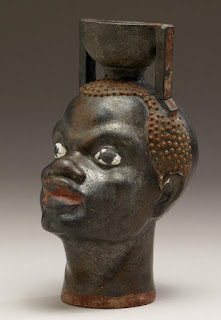World Directory of Minorities and Indigenous Peoples - Greece : Macedonians
Publisher - Minority Rights Group International
Publication Date - 2008
Cite as - Minority Rights Group International, World Directory of Minorities and Indigenous Peoples - Greece : Macedonians, 2008, available at: http://www.refworld.org/docid/49749d1841.html [accessed 11 May 2013]
Disclaimer - This is not a UNHCR publication. UNHCR is not responsible for, nor does it necessarily endorse, its content. Any views expressed are solely those of the author or publisher and do not necessarily reflect those of UNHCR, the United Nations or its Member States.
Profile
The term 'Macedonia' has become a sensitive issue for Greece due to its ethnic Macedonian population in northern Greece. From 1913, the Greek state has attempted to assimilate the ethnic Macedonian minority of northern Greece. During the Greek civil war there was a mass exodus of the Macedonian-speaking population. In 1944, the People's Republic of Macedonia (later changed to Socialist Republic of Macedonia) was established as a constituent Republic within the Yugoslav Federation. When the Socialist Republic of Macedonia declared its independence in September 1991, Greece opposed this claiming that the term 'Macedonia' implied territorial pretensions on Greece's northern region also named 'Macedonia' (note: prior to 1988, the region 'Macedonia' was officially known as Northern Greece). The sensitivity over the name 'Macedonia' was due to the ethnic Macedonian minority in northern Greece who renewed calls to be granted minority status.
Historical context
The area inhabited by ethnic Macedonians (also known as Slavomacedonians) constitutes the Republic of Macedonia and the borders of south-western Bulgaria, northern Greece and eastern Albania. In 1872 religious control over the Orthodox population of Macedonia was divided between Patriarchate Greeks and Exarchate Bulgarians, and at the turn of the century the region was populated by members of many ethnic groups speaking a common language closely related to Bulgarian. In 1872, when the Bulgarian exarchate became an independent church, the Greek state (through the Patriarchate) and the Bulgarian state (through the Bulgarian exarchate) exercised massive pressure on the Macedonian-speaking population to remain loyal or join their respective churches. In 1903 the Internal Macedonian Revolutionary Organization (IMRO, founded in 1893) proclaimed independent administrations in two areas of Macedonia, expecting to receive support from the European powers for an independent Macedonia. This was not forthcoming, and IMRO was crushed, leaving Greece, Bulgaria and Serbia to struggle for the territory.
When Macedonia was divided in 1913 (Greece acquired most of the territory, Serbia one-third and Bulgaria only one-tenth) the majority of the population were Bulgarophiles; yet ethnic Macedonians, regardless of which state they lived in, became the victims of discrimination or assimilation policies established in all three states.
In 1913, some 15,000 ethnic Macedonians became victims of ethnic cleansing by the Greek army in Aegean Macedonia. In 1924 Greece and Bulgaria signed the Kalfov-Politis Agreement, placing the 'Bulgarian' minority in Greece under the protection of the League of Nations. However, from 1925 the Greek government considered the minority to be Greek.
Greece's northern and eastern border is today approximately as it was fixed in 1913, but the demography has changed markedly. After the First World War between 52,000 and 72,000 ethnic Macedonians left Greece for Bulgaria, and 25,000 Greek-speakers came to Greece from Bulgaria. They were resettled in Greek Macedonia and given land often formerly cultivated by the local peasants. They were joined by hundreds of thousands of refugees from Turkey after a bilateral treaty between Greece and Turkey in 1923.
Following the civil war in Greece (1946-9), 35,000 Communist ethnic Macedonians went into exile and were stripped of citizenship; land was distributed to 'nationally minded' Greeks who were resettled in Macedonia. Those who continue to assert a Macedonian identity still cannot return. These rapid demographic changes were complemented by compulsory assimilation, including name changes, school closure and the prohibition of the Macedonian language in public and in the home. Greek control of education and job discrimination have encouraged assimilation, making the Macedonian minority increasingly difficult to define.
The independence of the former Yugoslav Republic of Macedonia has helped fuel Greek nationalism, and there has been a simultaneous resurgence in ethnic Macedonian minority activism, demanding recognition, although not autonomy or secession. The Macedonian Movement for Balkan Prosperity put up candidates in the 1994 elections and activists were subjected to harassment. In the 1990s, the Rainbow Party was formed as the main Macedonian political movement.
The registration of the party was initially rejected in Greece; however, after pressure from its allies in the European Parliament, the Macedonian activists were able to participate following a decision of the Supreme Court of Greece just 11 days before the elections in 1994. The Rainbow Party officially received 7,326 votes, however the party believes the true number to be much higher. The official number of votes was put in doubt, given that the results for Rainbow were given three weeks after the release of all other official results. Also throughout the campaign (as well as in subsequent election campaigns) Rainbow candidates were treated as foreign agents and were given no coverage in the mass media. Rainbow decided not to take part in the 2004 parliamentary elections, citing shortage of funds and continued isolation by the mass media, who continue to follow the official Greek government position.
Rainbow participated in the 2004 elections for the European Parliament, obtaining 6,176 votes out of 6,283,637 total votes cast (0.1 per cent). Their best return was in the Florina prefecture, where they managed to tally 1,200 votes. The Rainbow Party is a member of the European Free Alliance and in the European Parliament it is part of a joint parliamentary group with the Greens.
The (greek) government continues to not recognize the Macedonian language, calling it an 'idiom' spoken by persons in the north-western area of the country. Macedonian speakers insist on the use of the term 'Macedonian' to describe the language. The term 'Macedonian-speakers' generates strong opposition from Greek nationalists, and from the ethnic Greek population as a whole.
Current issues
Greece violated the ECHR
According to the 2006 US Department of State Report, on 20 October 2005 the European Court of Human Rights ordered the government to pay 35,245 euros to the Rainbow Party for violations of two ECHR articles: the right to a fair hearing and the right to freedom of assembly and association. The ruling faulted police for failing to take measures to prevent, or at least contain, violence during a 1995 demonstration instigated by the town council and local priests, during which Rainbow Party members were assaulted and the party offices were destroyed after the group hung a sign written in both Greek and the Macedonian language outside party headquarters. The ECHR also held that the seven years and one month that authorities took to investigate the case was an excessive and unreasonable amount of time.
The Home of Macedonian Culture
According to the Rainbow Party website, in 1990 a group of Greek citizens decided to form a non-profit making organization called the 'Home of Macedonian Culture.' The group proceeded to register this association with the local court in the town of Florina/Lerin. The court rejected the application asserting that the objective of the association was to promote the idea that 'there is a Macedonian minority in Greece, which is contrary to the national interest and subsequently contrary to the law'. An appeal to the Thessaloniki/Solun court also failed. In 1994 the highest court in Greece upheld these decisions. The applicants then appealed the case to the European Court of Human Rights. In 1998 the court found that there was a violation of Article 11 of the European Convention on Human Rights. Greece was ordered to pay 4 million drachmas compensation (11,738 euros). Following the Strasbourg ruling, the applicants tried once again to register the association. However, there was no lawyer in the Florina/Lerin area who would take up the case. Following the intervention of the Greek Ombudsperson, the Florina/Lerin Bar Association appointed a lawyer and a new application was submitted to the court. On 12 December 2003, the local court in Florina/Lerin again refused to register the association, thus ignoring the Strasbourg ruling. The case was then appealed to the regional court, which upheld the decision of the Florina court, again ignoring the Strasbourg ruling. Thus, eight years after the Strasbourg judgment and 16 years after the initial application, the Home of Macedonian Culture remains an unregistered organization.
Traditional place names and personal names
According to the Rainbow Party website, during the period between the two world wars Greece enacted a number of laws which replaced all non-Greek names of towns, villages, rivers and mountains with Greek names. These traditional toponyms (which still exist in unofficial use among the population) are not given official recognition by the Greek state. Also during the 1930s the personal names of the Macedonian-speaking population were also forcibly changed to Greek ones. One of those was the Filipov family whose name was changed to Voskopoulos. In April 2005, Pavlos Voskopoulos made an application to the local Prefect in his home town to change his surname back to his traditional Macedonian family name 'Filipov'. The application was rejected. The matter was appealed to the General Secretary of the Region who upheld the decision. The matter is now before the courts.
Macedonian language
Although various human rights bodies have strongly recommended the Greek state to take measures for the recognition and the protection of the linguistic rights of the Macedonian-speaking population in Greece, the Greek government continues to ignore such advice. For example, in 2003 the European Commission for Racism and Intolerance recommended that Greece sign the European Charter of Regional or Minority Languages, as well as ratify the Framework Convention for the Protection of National Minorities. In 2006, the Greek Bureau for Lesser-Used Languages (EBLUL) and the European Free Alliance – Rainbow took the first step towards introducing the Macedonian language to the Greek education system by printing a primer of the Macedonian language. The primer included a reprinted edition of the 1925 Macedonian language primer printed by the Greek government and also featured an updated edition of that publication.Discrimination against political refugees
According to the European Free Alliance – Rainbow, "During the civil war in Greece (1946-9), thousands of Greek citizens fled Greece. Following the end of the war, all those who left Greece during this period were stripped of their Greek citizenship and property. In 1982 the Greek government passed an amnesty law (Law 106841) that allowed the return of political exiles who fled during the civil war and were stripped of their citizenship, providing they are 'Greeks by genus'. In 1985, Law 1540 was passed in which political exiles who fled during the civil war were allowed to reclaim confiscated property, provided they are 'Greeks by genus'. The term 'Greeks by genus' is a reference used by the Greek government for all those who identify themselves as being ethnic Greek. Hence, ethnic Macedonians who are also political refugees and have had their Greek citizenship rescinded and properties confiscated are excluded from enjoying the rights granted under these laws. Given that ethnic Macedonians predominantly make up this category of people, it is indisputable that they have been the ones targeted by this exclusivist definition and the ones to have suffered the most. The individuals excluded by these two laws mostly reside in the Republic of Macedonia, Australia and Canada."



